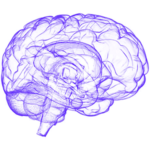
Congratulations on welcoming a new bundle of joy into your life! Bringing home a new baby is a special and exciting time. However, it can sometimes be chaotic and/or stressful. Accepting help and support from your partner, friends and family is completely acceptable. Below are some great tips on how to take care of yourself and your baby as a person with epilepsy.
Sleep Deprivation
Many new parents battle sleep deprivation when caring for a newborn. However, for individuals with epilepsy, sleep deprivation can be a trigger for increased seizures. For that reason, it is very important for people with epilepsy to try to avoid sleep deprivation and get a good night’s sleep consistently.
Here are some tips to help against sleep deprivation:
- Sleep while the baby sleeps. Taking naps while your baby naps is a great way help to decrease your sleep deficit.
- Take shifts. Work with your partner or support system to develop a schedule. It may be best for them to care for the infant during the night, while you sleep, to prevent sleep deprivation.
- Look for parenting support programs. Large metropolitan areas have companies set up to provide in-home services for new parents. The staff are often nurses, lactation consultants, etc. who can provide overnight care to your newborn, while you sleep!
It’s very important that you minimize your sleep deprivation and maximize your sleep to help protect you against seizures.
Seizure and Baby Safety
There are several precautions that people with epilepsy should consider when caring for a baby — especially if your seizures are frequent or unpredictable. Here are some tips to keep both you and the baby safe, while still providing care to the infant.
Here are some tips to help keep everyone safe:
- Sponge bathing instead of using a bathtub will keep your baby safe in the event of a seizure.
- Opt for the floor when changing diapers rather than a changing table or bed.
- Accessible supplies. Keeping diapers and changing materials on each floor of the home can help you avoid frequent trips up and down the stairs.
- Sit on the floor while feeding your baby. You can use a pillow of the back of a couch for support.
- Use a stroller to move the baby around the home instead of a baby carrier.
Infant Feeding
The choice to breast or bottle feed is completely up to you. Yes, there is evidence that shows that there are many benefits to breastfeeding for both mother and child. However, how you feed your child is a personal decision. All that matters is that the child is fed. Many parents are unable to breastfeed or choose not to breastfeed for various reasons –all of which are OK.
That being said, studies do support that breastfed babies have stronger immune systems with fewer episodes of diarrhea, respiratory infections, and ear infections. There has also been data to support a lower risk of Sudden Infant Death Syndrome (SIDS) among breastfed infants. Additionally, children who were breastfed as babies also have lower rates of allergies, asthma, childhood cancer, diabetes, inflammatory bowel disease, obesity, and autoimmune diseases such as lupus. If you choose to breastfeed, the American Academy of Pediatrics recommends breastfeeding through the first year of life.
What if I am concerned about my seizure medications?
Several antiseizure medications have been studied during breastfeeding. These include levetiracetam (Keppra), lamotrigine (Lamictal), oxcarbazepine (Trileptal), carbamazepine (Tegretol), topiramate (Topamax), zonisamide (Zonegran), and valproic acid (Depakote). If you are taking these medications, they are considered safe for breastfeeding. Studies have shown that very little (if any) of these medications is passed to your child through breast milk. However, there are many other antiseizure medications that have not been studied yet during breastfeeding. If you have a question about your antiseizure medication, talk with your health care provider (HCP).
Will I harm my child by breastfeeding and taking my antiseizure medication?
No. Studies have shown that children breastfed by a parent with epilepsy (who is taking one of the antiseizure medications listed above) have been shown to have similar or better IQ and neurological development than those who were formula fed.
What should I do?
It is ultimately a personal decision whether you want to breastfeed or formula feed. However, breastfeeding appears to be safe for women with epilepsy taking the antiseizure medications that have been studied. Breastfeeding also has many benefits for the baby.
Our health guides are developed through a systematic, rigorous process to ensure accuracy, reliability, and trustworthiness. Written and reviewed by experienced healthcare clinicians from Boston Children's Hospital, a Harvard Medical School teaching hospital and consistently ranked as a top hospital by Newsweek and U.S. News & World Report, these guides combine clinical expertise, specialized knowledge, and evidence-based medicine. We also incorporate research and best practices from authoritative sources such as the CDC, NIH, PubMed, top medical journals, and UpToDate.com. Clinical specialists and subject matter experts review and edit each guide, reinforcing our commitment to high-quality, factual, scientifically accurate health information for young people.